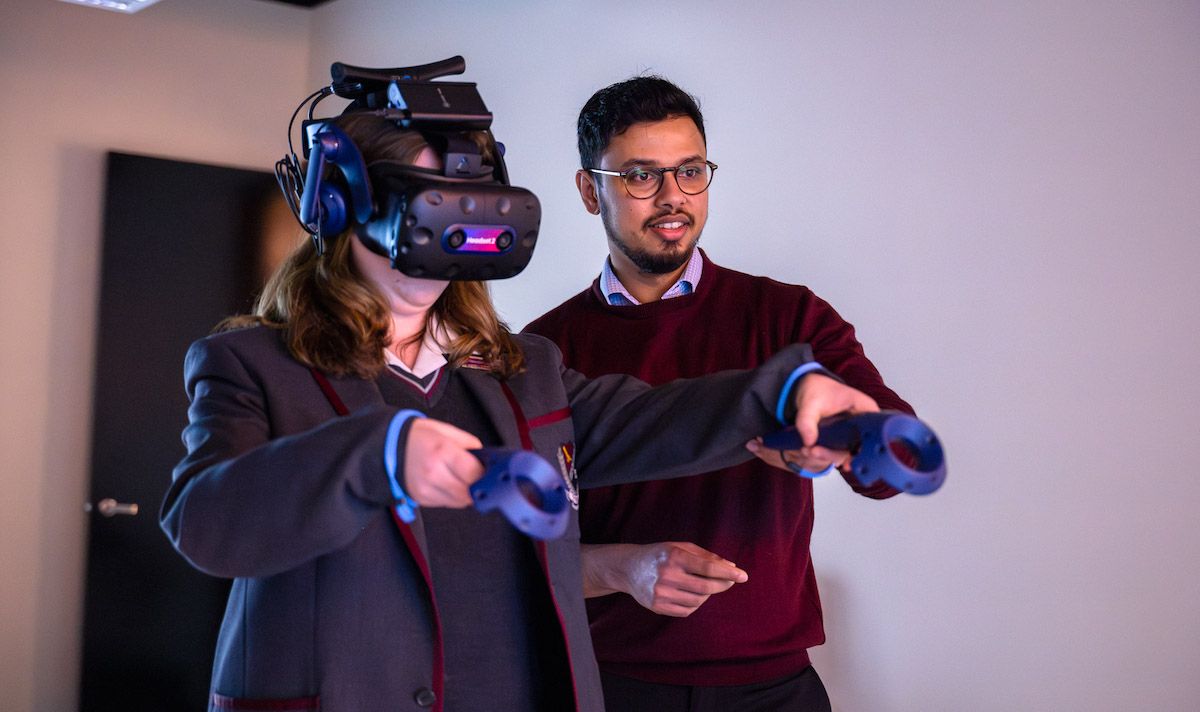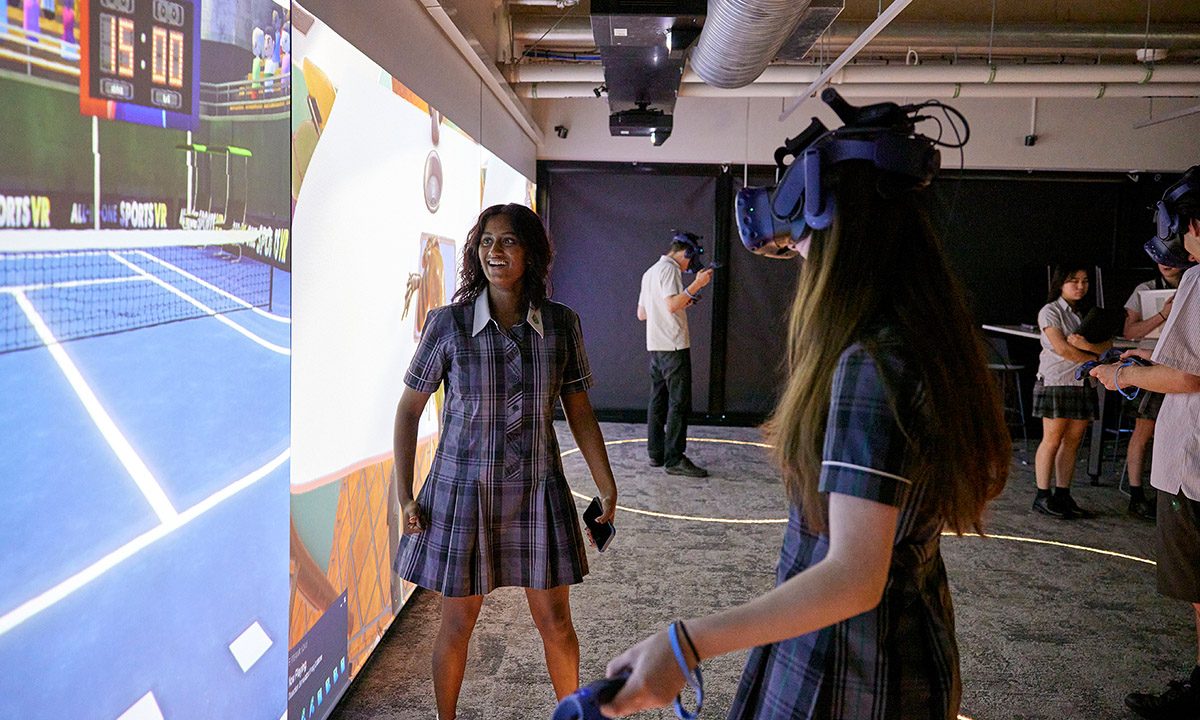Author: Lumination
Date: 21st Jul 2023
VR, AR and other types of technology are changing the game in education
Technology is going to change everything. It’s already changing everything — from the way we shop to the way we enjoy our free time, even to the way we connect with friends and family. Of course, education is no different. In fact, advancing technology is transforming the way young people learn and the way educators work with their students.
The role of technology in education is a big part of what Lumination is all about. We’ve already explored the integration of tech into the classroom and identified some of the biggest changes that technology is going to bring to the classroom. Take a look at our insight into the future of education here.
We’ve also looked at nine reasons why educators need to be using technology in their classrooms, so don’t forget to check those out.
For now, though, let’s go into a bit more detail about the future of technology in education, examining the specific changes we can expect and the impact these changes are going to have.
Personalised Learning
The idea of generalised learning — in which students progress at the same pace through the same structure of learning objectives — has fallen out of favour in recent years. Students have their own unique needs, their own specific strengths, and their own areas that require additional assistance and guidance. One of the key applications of technology in the future of education will be in achieving this personalisation. Students can receive tailored lessons and materials that are delivered with their own needs and abilities in mind. With this approach, students achieve greater academic success and no one is left behind.
Gamification
People of all ages enjoy games and challenges. Introducing gamification to education boosts engagement and enjoyment, making it easier to maintain the attention of students for longer periods of time. Technology and gameplay have long gone hand in hand, and this will have a big role to play in the future of technology in education.
By building technological solutions that adhere closely to gaming principles — and by including elements like points, badges, and leaderboards — educators can motivate students on their learning journey. Another example of how this can work is to use the narrative frameworks adopted by computer games, in which students explore hypothetical scenarios with quests and tasks that must be completed to reach the next level. Previous generations of students experienced this when interacting with narrative-driven educational software like The Oregon Trail and The Crystal Rainforest, but VR and AR tech gives us the opportunity to build even more engaging and realistic worlds within the classroom.
Virtual and Augmented Reality
Virtual and augmented reality (VR and AR) technology has come a long way in recent years, and the implications for education are profound. Adoption of this technology in education is growing fast. VR and AR create immense environments that revolutionise the way students tackle difficult topics, taking them on explorative adventures via simulations and visualisations that expand the boundaries of learning. With this technology in education on their side, students can better understand complex and sophisticated topics. This is particularly valuable in STEM subjects where virtual labs, such as our Lumination Learning Labs, can improve knowledge delivery and retention.
Collaborative Learning
While personalised learning suggests an individual learning experience, this does not mean students need to progress along education pathways alone. Interpersonal, communication, and collaborative work skills are vital in the development of students and will prove invaluable in their academic, professional, and social lives. During the pandemic, technology facilitated real-time communication and collaboration between students, regardless of their physical location. We can expect this to continue as educators adopt increasingly sophisticated collaborative platforms in the future as technology is embedded more deeply into the educational environment.
Knowledge Verification
The idea of misinformation — often referred to simply as “fake news” — has become an important topic in our society, and this is going to change the future of education in a big way. Students not only need to be able to acquire and retain knowledge, but they need to be able to interrogate it and verify it too. The future of education must reflect this, pivoting towards questions l “Where did this information come from?” “Is the source credible and valid?” “What factors could influence the delivery of this information?” and “How was this information gathered?”
This last point represents both an opportunity and a challenge of technology in the classroom and its role in the future of education. Artificial intelligence solutions are likely to change the way subjects are taught in schools, providing a powerful tool for lesson creation and delivery. However, these tools need to be used with care. In Australia, only South Australia has not banned the use of ChatGPT in the classroom, and concerns have been raised about the potential harm AI can cause if it is not used correctly.
Lumination’s Academic Reference Checker
We believe that AI tools like ChatGPT can be immensely valuable in increasing productivity for educators, while generative AI can assist students with planning and ideation. We do, however, recognise that ChatGPT and similar tools need to be used with great care as the future of education develops. These tools will need to be deployed alongside academic reference checkers so that students are taught to apply critical and cognitive principles during the learning process.
To achieve this, we have developed our own Academic Reference Checker — a web-based tool that gives teachers, academics, and students at all stages of the journey the capability to cross-reference and verify citations and web links.
You’ll find this tool within our Lumination Education Centre (LEC). The LEC is our innovative learning management system, bringing the capabilities of immersive learning to life with training, tutorials, lesson plans, and much more. This is delivered alongside our Lumination Learning Labs offering, and every Lab user gains access to this valuable platform, including the Academic Reference Checker.
If you’re not yet a Lumination Learning Labs customer, you can sign up for an account with Lumination and use this resource for free.



